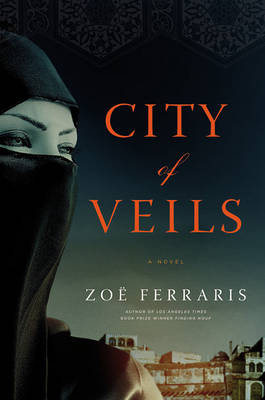
Heather
Written on Jan 5, 2016
- An American woman living in Saudi Arabia for a year with her husband isn't met at the airport when she returns from a month in the U.S. After her husband finally arrives to get her out of the Unclaimed Women* room, he takes her home and runs out to get dinner. He puts the food on the table and then disappears.
- The body of a woman is found on the beach. She is not easily identified because her face and hands have been burned beyond recognition.
Katya Hijazi is a laboratory technician in the forensic lab in Jeddah. She would like to do more but her opportunities are limited. Her break comes when one of the few female police officers who goes on murder investigations is fired because she lied about being married. Katya is lying too. Unmarried women aren't allowed to work for the police in Saudi Arabia.
Nayir Sharqi is a desert guide with nothing to do during the hottest time of the year when no one wants to go to the desert. It has been eight months since he last talked to Katya, who he met while working with the investigation in Finding Nouf. He was considering marriage when she suddenly stopped communicating with him. Now his uncle wants him to ask her about a friend of his who died. This opens up lines of communication again. When Katya finds out that the dead girl was involved in making documentaries about the origins of the Qu'ran, she enlists Nayir to read through the documents she's found because of his knowledge of the scriptures. What he reads shakes the underpinnings of his faith - as does his involvement with Katya and a police officer who has his own code of justice that uses logic and mercy but doesn't always conform with the letter of the law.
This is the second book in the series set in Jeddah, Saudi Arabia. When I think of Saudi Arabia, I don't often think of the beach. Jeddah is a coastal town and the water plays as much of a part in the lives of the people there as the desert.
This is a very nuanced look at life in Saudi Arabia and the women who live in virtual seclusion there. The author is a white woman who lived in Saudi Arabia with her husband's family. That informs her description of Miriam, the American woman who has been left stranded when her husband disappears. She also has small insights into life in Saudi Arabia. How do men who have to pick up women to drive them home from work pick out the right person from a group of burka-clad women? Look at the purse and then hope she recognizes you.
She writes compassionately about men struggling to adapt to a world where women are being granted rights that they think conflicts with their faith. She explains the frustrations of the women who want to do more with their lives than be sheltered.
She explains the complications of a murder investigation in a world where men can deny police interviews with female relatives. How do you recreate the life of a victim who has lived her life mostly hidden?
This is a great series and I'm looking forward to reading the last book soon.
*Seriously, Unclaimed Women? Like baggage? That's just rude. Women aren't allowed to enter the country without a man to be in charge of them.This review was originally posted on Based On A True Story
